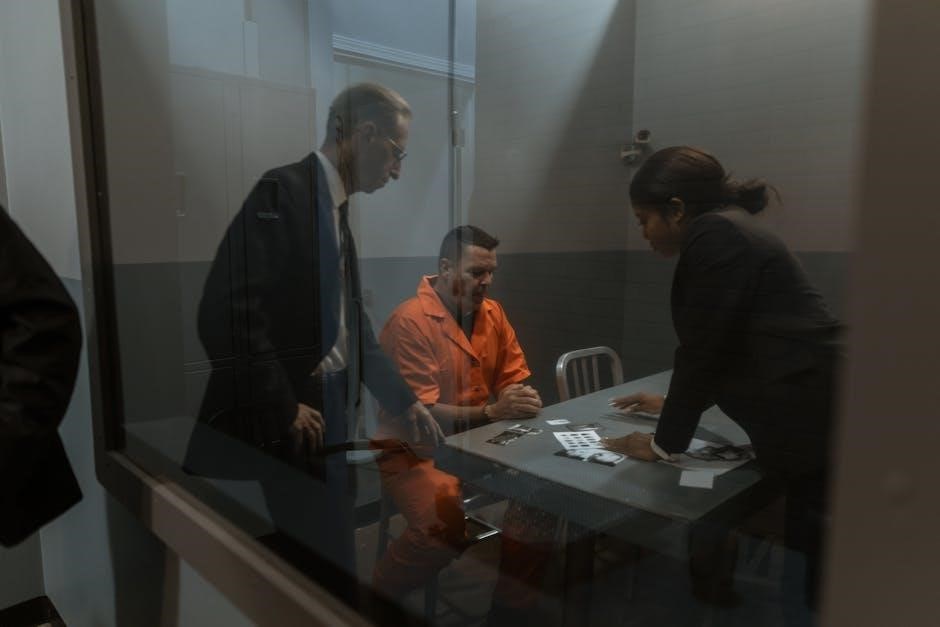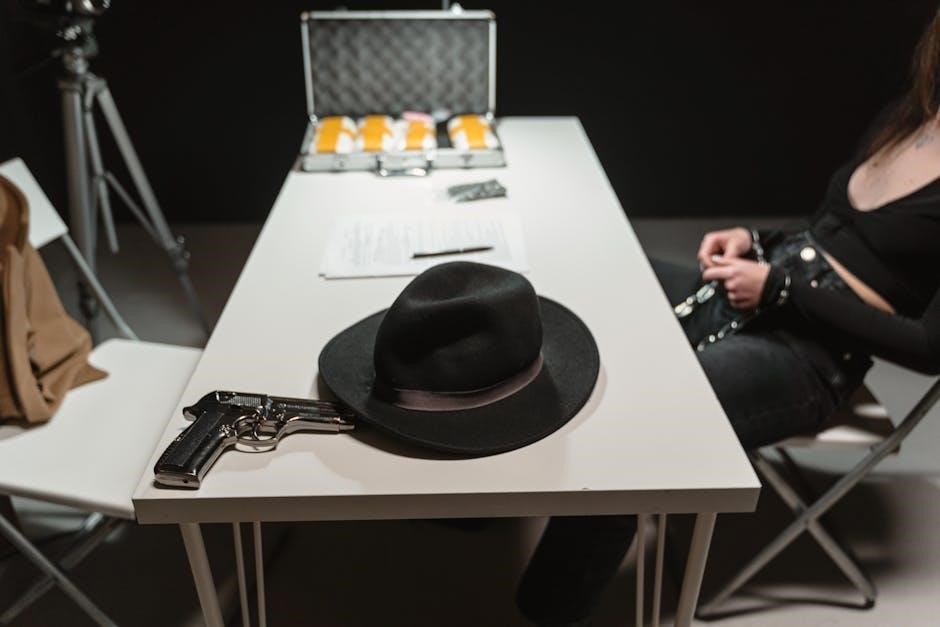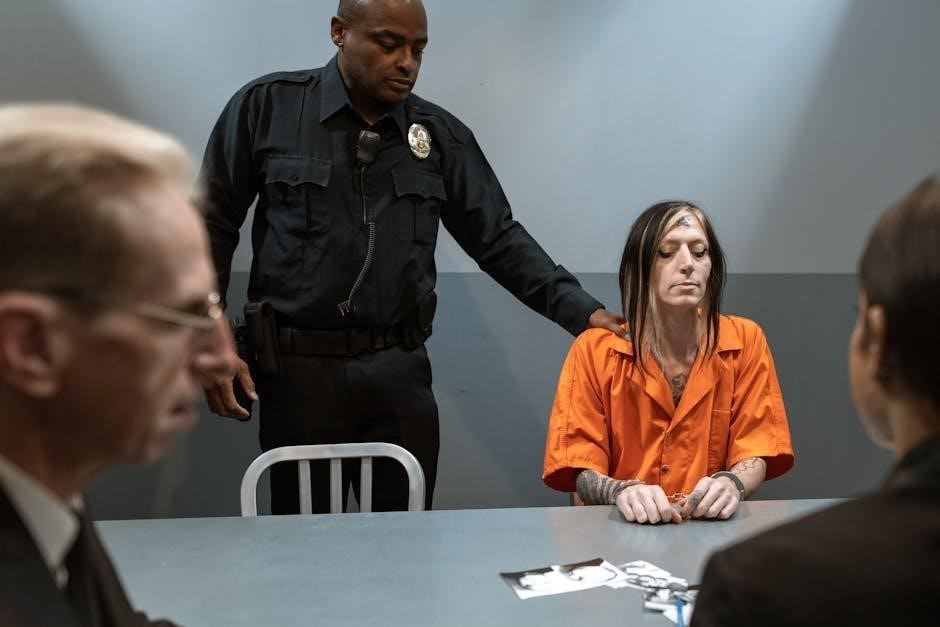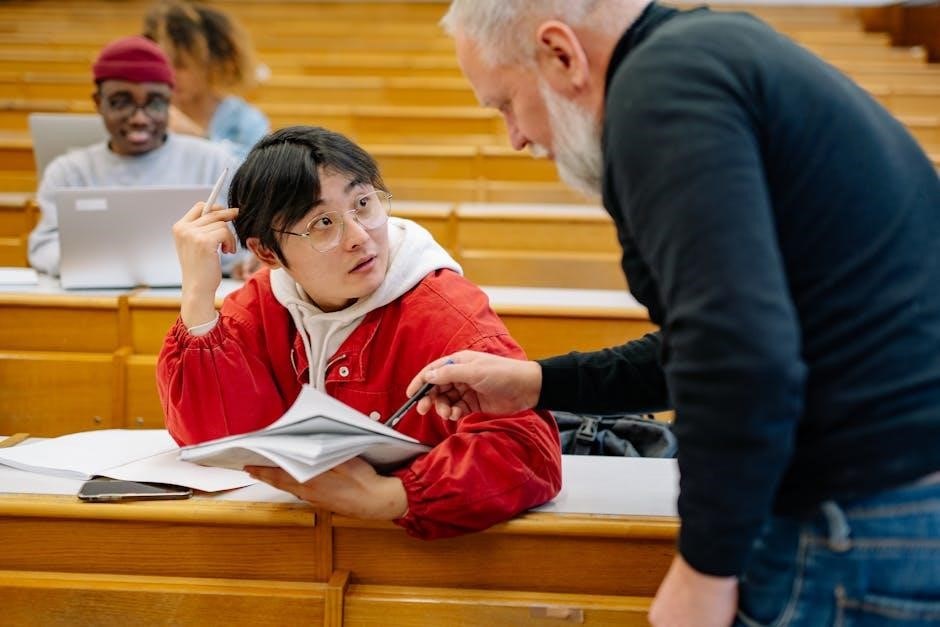Preparing for the F1 visa interview is crucial for international students seeking to study in the U.S. This guide provides essential questions and answers to help you navigate the process confidently.

Overview of the F1 Visa Interview Process
The F1 visa interview is a critical step for international students applying to study in the United States. Conducted by a consular officer, the interview assesses your eligibility for the visa and verifies the information provided in your application. The process typically lasts 3-5 minutes, during which you will be asked questions about your academic plans, financial situation, and intent to return home after completing your studies. The officer evaluates your preparedness, honesty, and genuine interest in pursuing education in the U.S. To succeed, it is essential to be well-prepared, dress professionally, and organize all required documents beforehand. Practicing responses to common questions and demonstrating confidence will help you make a positive impression. The interview is not just about answering questions but also about showcasing your clarity of purpose and readiness to comply with visa regulations. Proper preparation significantly increases your chances of approval.

Common F1 Visa Interview Questions 2024
Expect questions about your academic goals, reasons for choosing the U.S., financial plans, university selection, and post-graduation intentions. Prepare thoughtful answers to demonstrate clarity and genuine intent.
Questions About Academic and Study Plans
During the F1 visa interview, expect detailed inquiries about your academic and study plans. Be prepared to explain why you chose your specific major, how it aligns with your career goals, and why you selected the U.S. for your education. Officers may ask about your familiarity with the curriculum, how you plan to manage coursework, and your expectations from the program. Emphasize your genuine interest in the field and how the U.S. program will help you achieve your objectives. Highlight any unique aspects of your chosen university or program that make it ideal for your academic pursuits. Demonstrating a clear understanding of your study plans and their relevance to your future will show your commitment and seriousness. Be specific, authentic, and confident in your responses to make a positive impression.
Questions Regarding University Choice
Interviewers often ask why you chose your specific university and program. Be ready to discuss factors like academic reputation, faculty expertise, and program offerings. Explain how the university aligns with your career goals and why it stands out compared to others. Highlight any unique facilities, research opportunities, or campus resources that drew you to the institution. Mentioning specific courses or professors can demonstrate your genuine interest. Additionally, you may be asked about the location of the university and how it suits your lifestyle. Show that you’ve done thorough research by citing rankings, alumni success, or special programs. Emphasize that your choice was intentional and aligns with your academic and professional aspirations. Avoid generic answers and provide specific details to showcase your thought process and commitment to your education.
Financial and Sponsorship-Related Questions
Financial questions are critical in the F1 visa interview to ensure you can support yourself in the U.S. Be prepared to explain your funding sources, such as scholarships, family support, or personal savings. You may be asked, “How will you pay for your education?” or “What is your sponsor’s annual income?” Provide detailed breakdowns of tuition, living expenses, and health insurance. If you have a sponsor, explain their relationship to you and their financial capacity. Mentioning specific documents like bank statements or scholarship letters can strengthen your case. Avoid mentioning reliance on part-time jobs, as this is not a guaranteed income source. Demonstrate that your funds cover the entire duration of your studies and that you have a clear financial plan. Be honest and transparent, as officers aim to ensure you can afford your education without violating visa terms. Proper documentation and a well-prepared explanation are key to success.
Post-Graduation Plans and Intent to Return Home
Questions about your post-graduation plans are designed to assess your intent to return home after completing your studies. Be ready to explain how your U.S. education aligns with your career goals in your home country. You may be asked, “Will you return home after graduation?” or “What are your career plans?” Highlight strong ties such as family, job offers, or property in your home country. Emphasize how the skills and knowledge gained in the U.S. will benefit your career and community back home. Avoid discussing plans to work in the U.S. or pursue immigration. Instead, focus on your commitment to returning and contributing to your country. Clear, genuine, and detailed answers demonstrate your intent to comply with visa regulations and reassure officers of your temporary stay in the U.S. This is a critical aspect of the interview, as it directly impacts visa approval. Be confident and specific about your future plans.

How to Prepare for the F1 Visa Interview
Organize your documents, dress professionally, and rehearse answers to common questions. Practice articulating your study plans, financial stability, and intent to return home. Confidence and preparation are key to success.

Documents Required for the Interview
To ensure a smooth F1 visa interview, gather and organize all necessary documents. Bring your passport, I-20 form, visa appointment letter, financial statements, admission letters, and proof of English proficiency. Include transcripts, test scores (TOEFL, IELTS, GRE, GMAT), and sponsorship letters if applicable. Organize documents in a folder for easy access. Ensure all financial documents, such as bank statements or scholarship letters, clearly show sufficient funds for tuition and living expenses. Bring copies of your visa application, fee receipts, and passport-sized photos. Having all documents ready demonstrates responsibility and preparation, making a positive impression. Double-check that all information is accurate and up-to-date to avoid delays. Proper documentation is critical for a successful F1 visa interview, as it verifies the details provided in your application.
Dressing Appropriately for the Interview
Dressing professionally for your F1 visa interview is essential to make a positive first impression. Wear formal or business casual attire, such as a suit, tie, or blouse, to demonstrate respect and seriousness. Avoid casual clothing like jeans, t-shirts, or sneakers, as they may give the impression of lack of effort. Ensure your outfit is clean, ironed, and modest. For women, a professional dress or pantsuit is appropriate, while men should consider a suit and tie or a button-down shirt. Pay attention to grooming, as neatness reflects organization and responsibility. Avoid excessive jewelry or bold accessories that may distract. Dressing professionally not only boosts your confidence but also shows the interviewer that you are taking the process seriously. Remember, your appearance is the first thing the officer will notice, so make it count.
Tips for Answering Questions Confidently
Tips for Answering Questions Confidently

To ace your F1 visa interview, it’s crucial to answer questions with confidence and clarity. Start by thoroughly researching common interview questions and practicing your responses. Be honest and direct, ensuring your answers align with the information in your documents. Maintain eye contact and speak clearly to show sincerity. Avoid nervous habits like fidgeting or hesitating excessively. If unsure about a question, ask for clarification politely. Highlight your academic achievements, career goals, and reasons for choosing the U.S. and your specific university. Emphasize your intent to return home after graduation by discussing family ties, job opportunities, or future plans. Stay calm and composed, even if asked tough questions. Remember, confidence and preparation are key to making a positive impression and securing visa approval.

Real-Life Examples of F1 Visa Interview Experiences 2024
Many students have shared their F1 visa interview experiences, highlighting varying question patterns and approval processes. Some reported brief interviews, while others faced detailed inquiries about study plans and financial backing.
Lessons Learned from Successful Interviews
Successful F1 visa interviews often highlight the importance of honesty, transparency, and thorough preparation. Applicants who clearly articulate their study plans, career goals, and financial stability tend to fare better. Being specific about why you chose your university and program demonstrates genuine interest. Additionally, showcasing strong ties to your home country, such as family or job opportunities, reinforces your intent to return after graduation. Properly organizing and presenting required documents, like financial statements and admission letters, can also make a positive impression. Dressing professionally and maintaining a confident demeanor further enhances credibility. Many successful applicants emphasize the value of practicing English and anticipating potential questions. Overall, the key to success lies in being well-prepared, authentic, and concise in your responses.
Common Mistakes to Avoid
- Overconfidence: Avoid appearing overly confident, as it may raise concerns about your intent to return home.
- Inconsistent Answers: Ensure your responses align with the information in your documents to avoid suspicion.
- Financial Underestimation: Clearly outline your funding sources and avoid relying on future U.S. employment.
- Lack of Program Knowledge: Not researching your university or program can signal a lack of genuine interest.
- Improper Documentation: Failing to organize or bring necessary documents can delay the process.
- Nervousness: Practice answering questions to maintain composure and deliver clear responses.
- Overexplanation: Keep answers concise to avoid unnecessary details that may confuse the officer.
